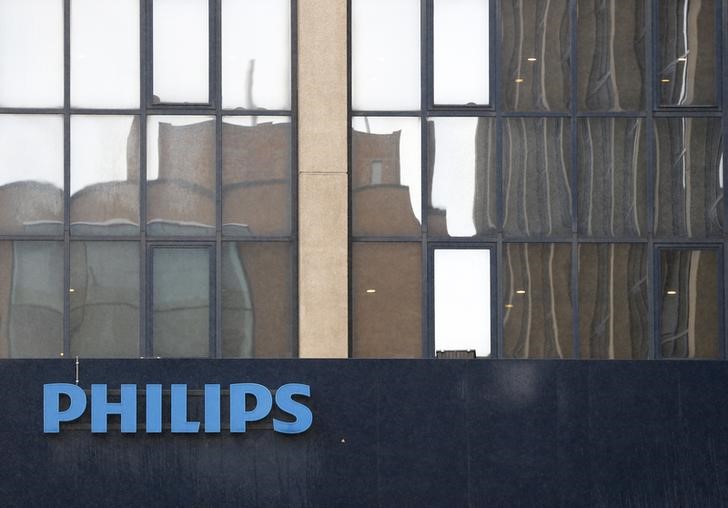Who is Kevin Hassett? Wolfe looks at the Trump ally tipped to become Fed Chair.
By Geoffrey Smith
Investing.com -- The benefits of breaking up a conglomerate and focusing on what you do best, where the opportunities are greatest, have seldom been clearer.
Dutch blue-chip Koninklijke Philips (AS:PHG) has now completed on an eight-year journey in which it has offloaded a range of underperforming or structurally challenged businesses – from domestic appliances such as TVs to light bulbs and sensors for the car industry. It’s now focused totally on its medical devices and services business – and the strategy is paying off.
The company’s shares hit an 18-year high on Monday after it announced a solid second quarter and upheld its guidance for the year in the teeth of a global slowdown in manufacturing. Comparable sales rose 6% - stronger than the 4.5% expected - and order intake rose 8%. That's no mean achievement at a time when manufacturers’ purchasing indexes and business surveys are flashing red in both developed and emerging markets.
Sales in China, notably, grew by more than 10%.
CEO Frans van Houten said he expected performance to improve in the second half and reiterated the company’s goal of improving its core operating margin (EBITA) by an average of 100 basis points in the period from 2017-2020.
Phillips shares were up 4.3% by mid-morning in Amsterdam, leading both the local market and the Euro Stoxx 50. The broader Stoxx 600 benchmark was up 0.2% on a generally lacklustre day, while the U.K. FTSE 100 was up 0.4% and the German Dax up 0.3%.
But Philips isn’t immune to the fallout of the U.S.-China trade war. Indeed, its home market of Europe accounts for less than a quarter of sales.
Its fastest-growing market is China, and any broad slowdown in the economy there may jeopardize the government’s aim of rolling out improved health care services. Moreover, it’s also at risk from the next planned round of U.S. tariffs against China, given that the devices it makes in China for the U.S. market would be covered by them. Van Houten told Reuters that the planned tariffs would slice another 20 million euros ($23 million) off core earnings, in addition to the 45 million euros already lost to previous tariffs - if they come into force.
